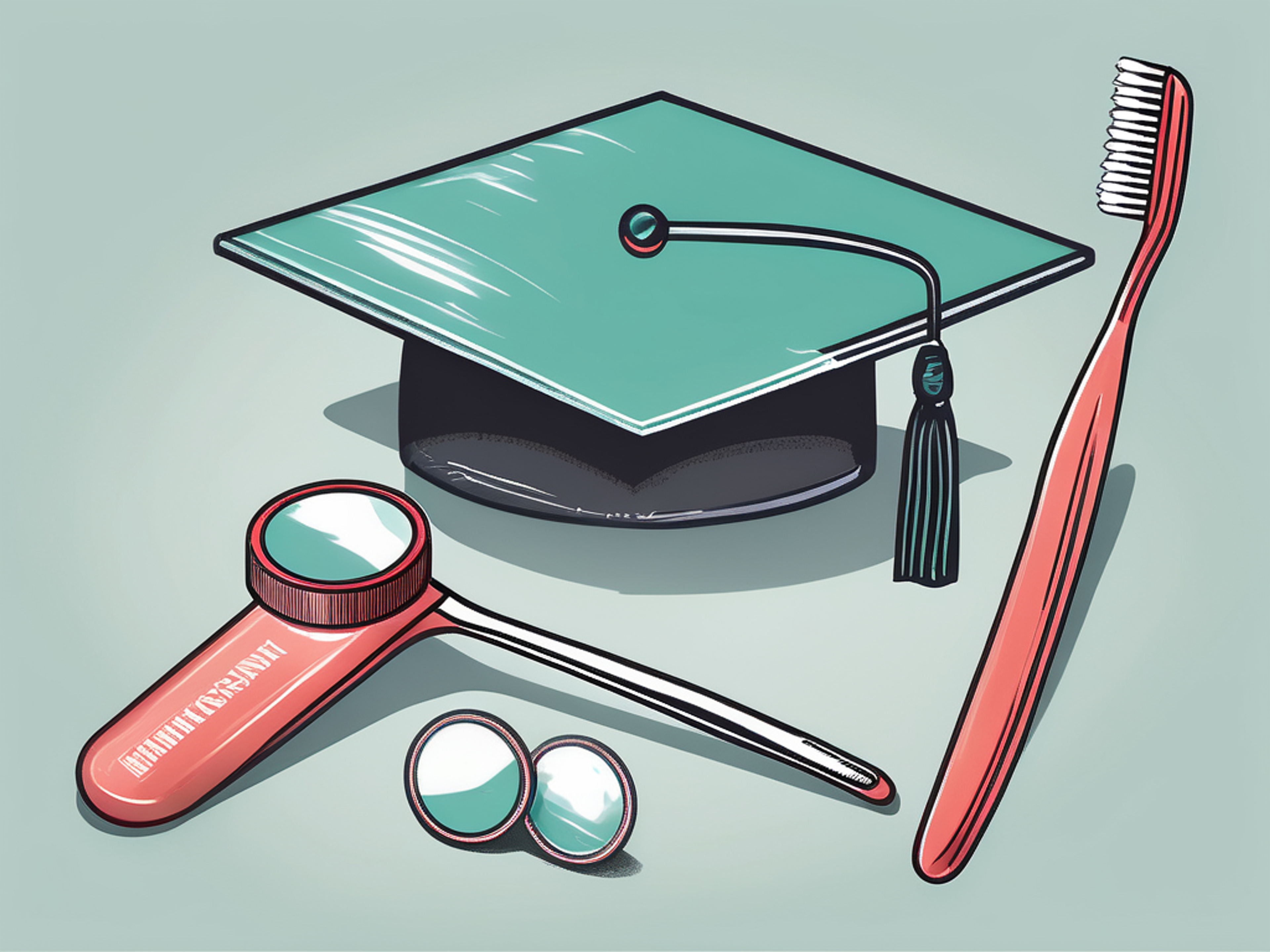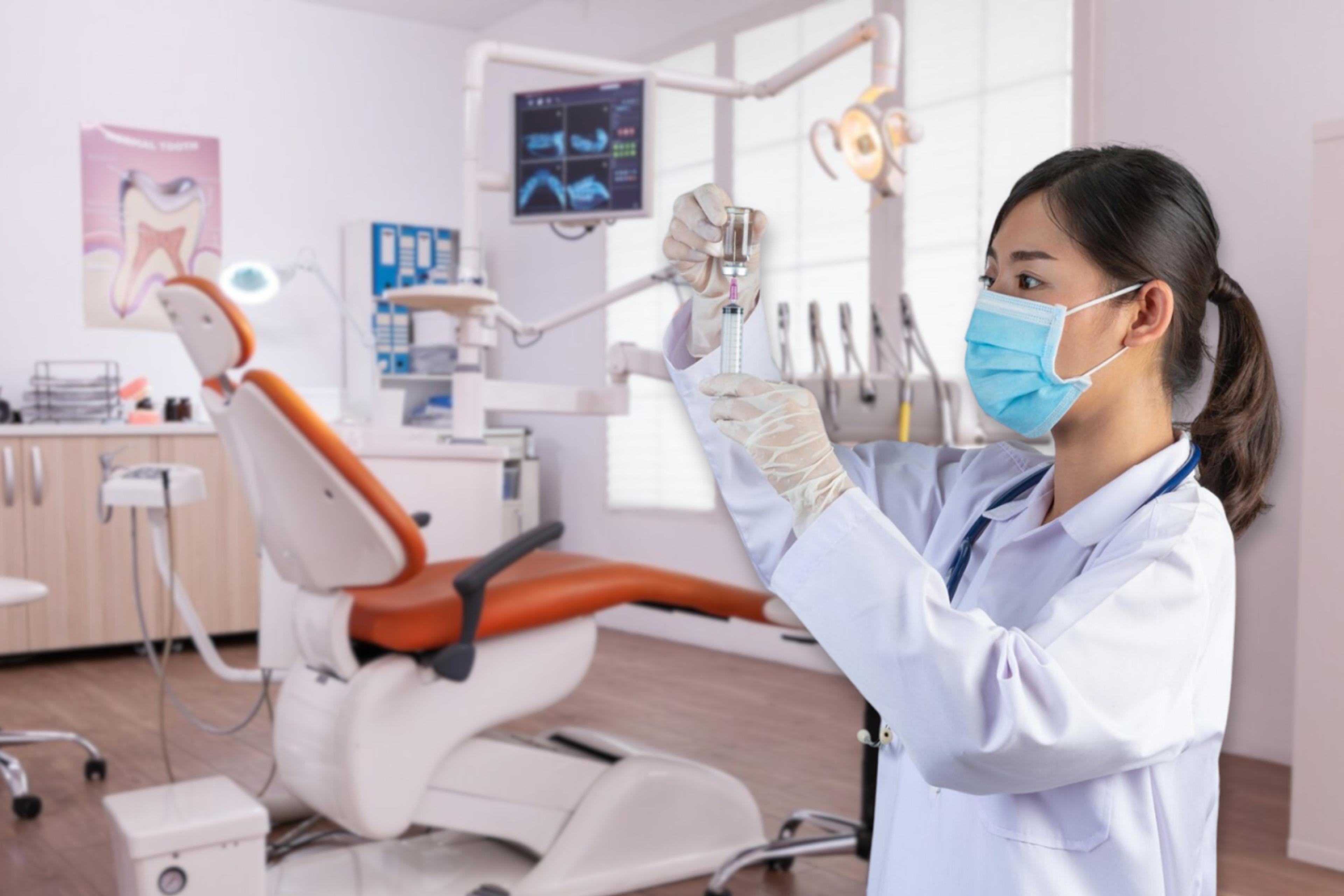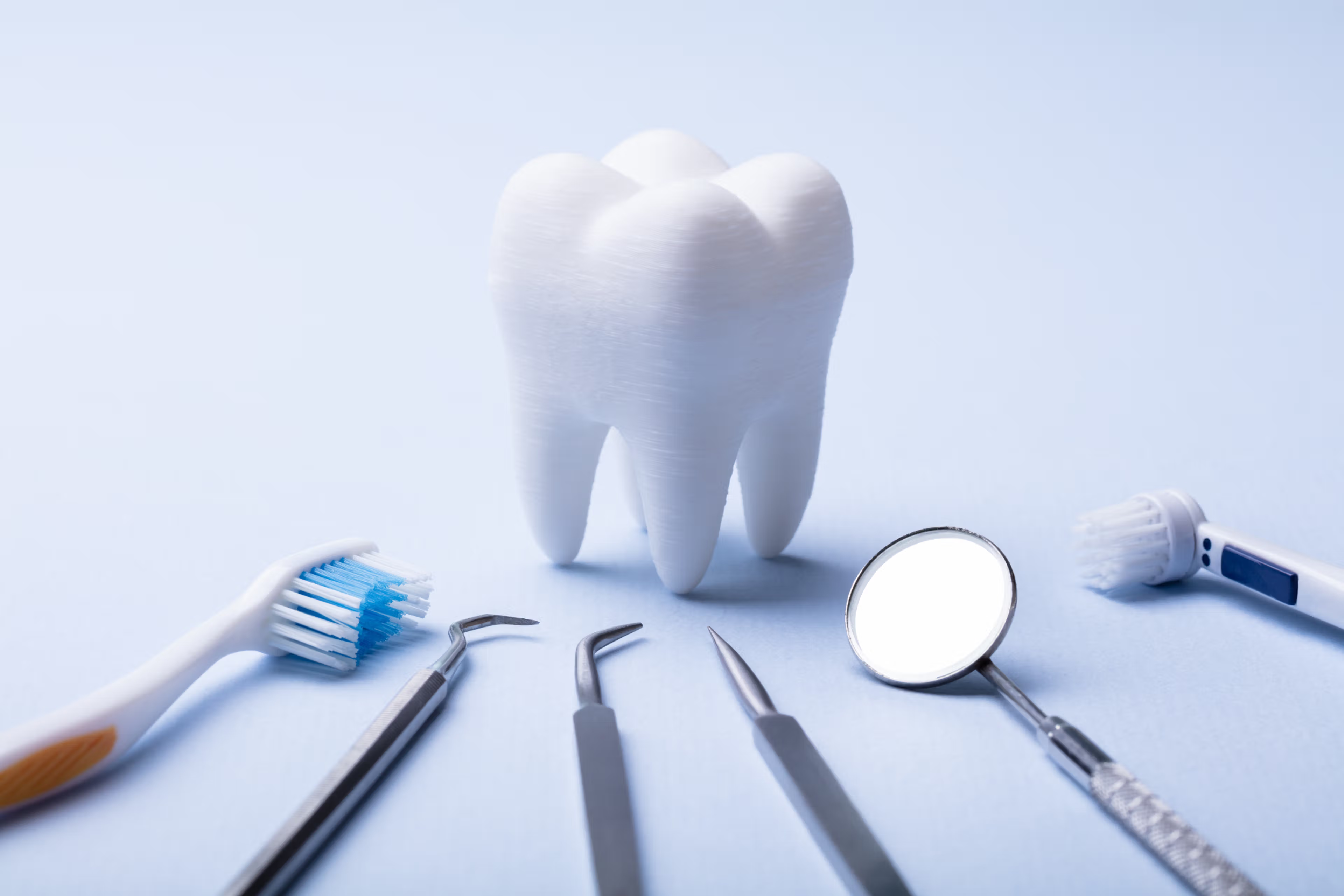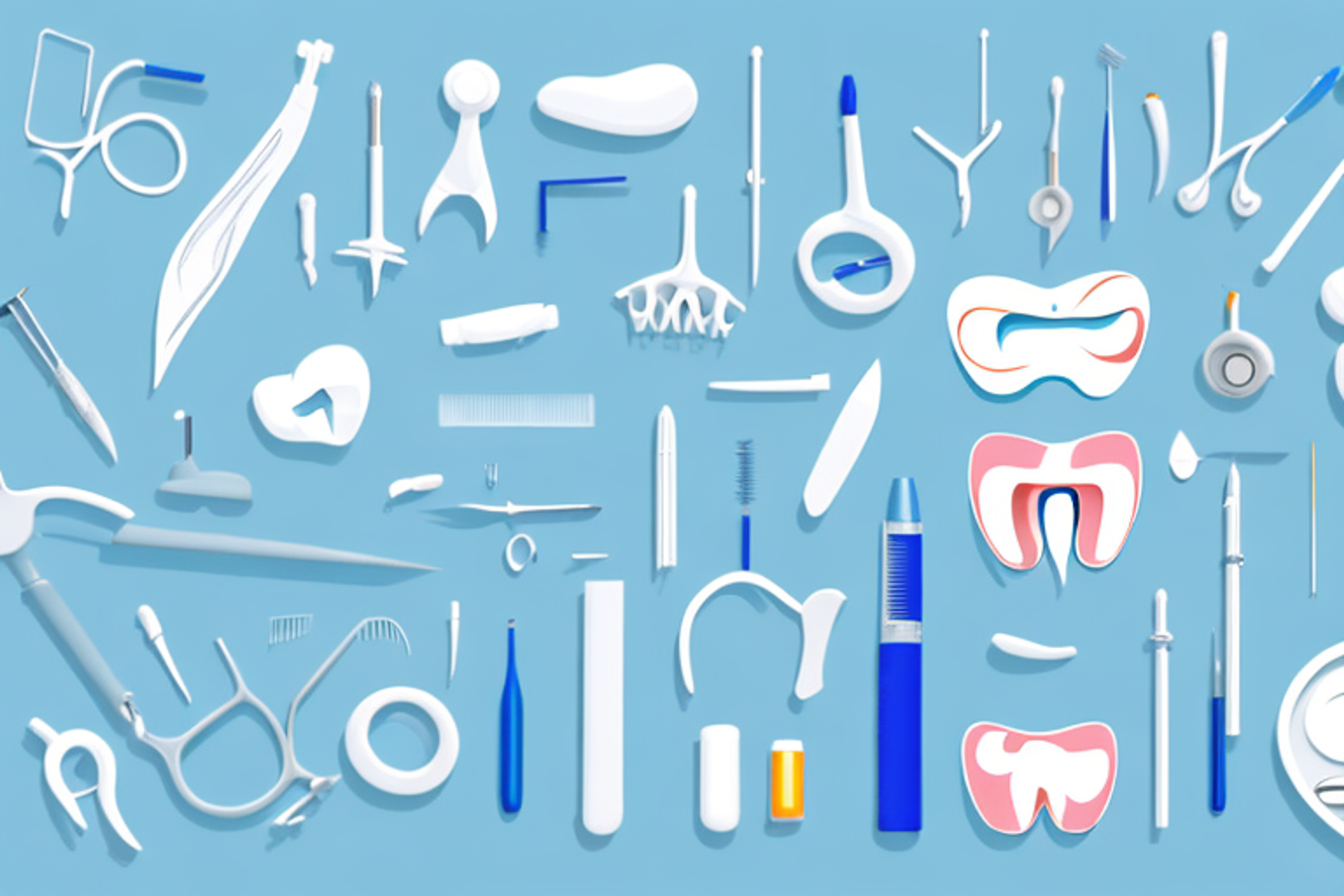Dental Hygienist School: Program & Application Overview
Looking to become a dental hygienist? This comprehensive article provides an in-depth overview of dental hygienist schools, programs, and the application process.
Posted April 10, 2025

Table of Contents
A career as a dental hygienist can be both rewarding and fulfilling. It offers the opportunity to make a positive impact on people's oral health and overall well-being. If you are interested in pursuing this profession, it is important to understand the various aspects of dental hygienist school programs and the application process. This comprehensive guide will provide you with an overview of what to expect when embarking on this educational and career journey.
What is the Role of a Dental Hygienist?
Before delving into the details of dental hygienist school programs, it is crucial to have a clear understanding of the role and responsibilities of a dental hygienist. Dental hygienists work closely with dentists to provide preventive oral care and enhance patient education and awareness regarding oral health. They perform several tasks, including teeth cleanings, dental x-rays, and oral health assessments.
A dental hygienist also plays a vital role in educating patients about proper oral hygiene practices and providing valuable tips for maintaining optimal oral health. They assist in the prevention and treatment of oral diseases such as cavities and gum diseases.
When it comes to teeth cleanings, dental hygienists are experts in removing plaque and tartar buildup. They use specialized tools and techniques to ensure a thorough cleaning, leaving the teeth and gums healthy and free from harmful bacteria. Additionally, dental hygienists conduct dental x-rays to identify any underlying oral health issues that may not be visible to the naked eye. These x-rays help dentists in diagnosing and treating dental problems effectively.
One of the key responsibilities of a dental hygienist is applying preventive treatments such as fluoride applications and dental sealants. These treatments help in strengthening the teeth and protecting them from decay. By evaluating patients' oral health, dental hygienists can create personalized treatment plans that address specific dental concerns and promote overall oral well-being.
Aside from their clinical duties, dental hygienists also excel in patient education. They have the knowledge and expertise to educate patients about oral hygiene practices and provide guidance on healthy habits. This includes demonstrating proper brushing and flossing techniques, discussing the importance of a balanced diet for oral health, and advising on the use of dental products that are beneficial for maintaining a healthy smile.
10 Key Responsibilities of a Dental Hygienist
A dental hygienist has a wide range of responsibilities that contribute to the overall dental care of patients. Some of their key responsibilities include:
- Performing teeth cleanings and removing plaque and tartar buildup.
- Conducting dental x-rays to identify any oral health issues.
- Applying preventive treatments such as fluoride applications and dental sealants.
- Evaluating patients' oral health and creating personalized treatment plans.
- Educating patients about oral hygiene practices and providing guidance on healthy habits.
- Assisting dentists during procedures by preparing materials and instruments.
- Conducting oral health assessments to identify potential risk factors and develop appropriate preventive strategies.
- Administering local anesthesia or numbing agents for patients undergoing dental procedures.
- Performing periodontal treatments such as scaling and root planing to treat gum diseases.
- Collaborating with other healthcare professionals to ensure comprehensive patient care.
Skills Required for a Successful Dental Hygienist
To excel in the field of dental hygiene, certain skills are required. Apart from technical skills related to oral care procedures, dental hygienists must possess excellent communication and interpersonal skills. They should be able to effectively communicate with patients, address their concerns, and educate them about maintaining good oral health. Other desirable skills include attention to detail, critical thinking, and the ability to work well in a team.
Furthermore, dental hygienists need to stay updated with the latest advancements in dental technology and treatment techniques. This involves attending continuing education courses and workshops to enhance their knowledge and skills. By staying current with industry trends, dental hygienists can provide the best possible care to their patients and contribute to the advancement of oral healthcare.
Exploring Dental Hygienist School Programs
When considering a career as a dental hygienist, it is essential to explore the various dental hygienist school programs available. These programs provide the necessary education and training to become a qualified dental hygienist.
Embarking on a journey to become a dental hygienist is an exciting and fulfilling endeavor. Not only will you be joining a profession that plays a crucial role in maintaining oral health, but you will also have the opportunity to make a positive impact on people's lives. By choosing the right dental hygienist school program, you can lay a solid foundation for a successful and rewarding career.
Types of Dental Hygienist Programs
Dental hygienist programs are offered at both community colleges and universities. Community college programs typically award an associate degree in dental hygiene, while university programs often offer a bachelor's or master's degree. The choice between these programs depends on individual career goals, time commitment, and financial considerations.
Community college programs are generally shorter in duration, typically lasting two to three years. They provide a solid foundation in dental hygiene principles and clinical skills. These programs often have a strong focus on hands-on training, allowing students to gain practical experience in a simulated dental setting. Moreover, community college programs are known for their affordability, making them an attractive option for those seeking a cost-effective route to becoming a dental hygienist.
On the other hand, university programs offer a more comprehensive education, including advanced courses in oral biology, dental research, and healthcare management. These programs typically require a longer time commitment, ranging from four to six years. University programs may also provide opportunities for research and specialization, allowing students to delve deeper into specific areas of dental hygiene. While these programs may come with a higher price tag, they often open doors to a wider range of career opportunities and potential for advancement.
Coursework and Curriculum Details
The coursework and curriculum of dental hygienist programs vary depending on the level of the program. However, there are some core subjects that are typically included in these programs. These subjects encompass both theoretical knowledge and practical skills necessary for performing dental hygiene procedures.
Students enrolled in dental hygienist programs can expect to study a variety of subjects that cover the intricacies of oral health. These subjects not only provide a solid understanding of the human oral cavity but also equip students with the necessary skills to assess, diagnose, and treat various dental conditions.
Some common coursework in dental hygienist programs includes:
- Oral Anatomy and Physiology: This course delves into the structure and function of the oral cavity, exploring the different components such as teeth, gums, and salivary glands. Students learn about the interplay between these structures and how they contribute to overall oral health.
- Oral Pathology: In this course, students learn to identify and understand various oral diseases and conditions. They study the causes, symptoms, and treatment options for common oral pathologies, enabling them to recognize abnormalities and provide appropriate care.
- Dental Radiography: This course focuses on the use of dental X-rays to diagnose and monitor dental conditions. Students learn about radiation safety, image interpretation, and the different types of dental radiographs used in clinical practice.
- Periodontology: Periodontology is the study of the supporting structures of the teeth, including the gums and bone. In this course, students learn about the prevention, diagnosis, and treatment of periodontal diseases, such as gingivitis and periodontitis.
- Pharmacology and Pain Management: This course provides an understanding of the medications commonly used in dental practice. Students learn about the effects, side effects, and contraindications of various drugs, as well as techniques for pain management during dental procedures.
- Dental Hygiene Ethics and Professionalism: In this course, students explore the ethical and professional responsibilities of dental hygienists. They learn about patient confidentiality, informed consent, and the importance of maintaining a high standard of professionalism in their interactions with patients and other healthcare professionals.
These courses, along with many others, form the backbone of dental hygienist programs. By completing these courses, students acquire the knowledge and skills necessary to provide comprehensive dental hygiene care and contribute to the overall oral health of their patients.
The Application Process for Dental Hygienist Schools
Once you have decided to pursue a career as a dental hygienist and chosen the program that aligns with your goals, it is time to complete the application process. This process typically involves several steps and requires careful attention to detail.
Preparing Your Application
Before starting your application, familiarize yourself with the specific requirements of the dental hygienist program you are applying to. This may include prerequisites such as biology or chemistry courses, letters of recommendation, and a personal statement.
Take the time to carefully review and organize all required documents, ensuring they are complete and accurate. It is recommended to start the application process well in advance to allow sufficient time for any necessary revisions or gathering of additional materials.
Essential Documents for Application
When applying to dental hygienist schools, you will need to provide several essential documents. These commonly include:
- Completed Application Form
- Official Transcripts from High School and College
- Letters of Recommendation
- Personal Statement or Essay
- Proof of Immunizations and Health Records
It is crucial to meticulously follow the instructions provided by the dental hygienist program regarding the submission of these documents. Failure to comply with the application requirements may adversely affect your chances of acceptance.
You can also read about: How to Get Into Dental School: Essential Tips and Guidelines
Financing Your Dental Hygienist Education
Obtaining a dental hygienist education may involve certain costs. It is important to plan for these expenses and explore available financing options to make your educational journey more manageable.
Tuition and Other Costs
The cost of dental hygienist programs can vary depending on the institution and the type of program. Community college programs generally have lower tuition fees compared to university programs. It is advisable to research and compare tuition costs at different institutions to ensure you choose a program that aligns with your budget.
In addition to tuition, there may be other costs associated with dental hygienist education, such as textbooks, dental supplies, and clinical fees. It is essential to factor in these additional expenses when planning your finances.
Scholarships and Financial Aid Options
Fortunately, there are various scholarship and financial aid options available to help offset the cost of dental hygienist education. Many institutions offer scholarships specifically for dental hygiene students based on merit or financial need. Additionally, federal student aid programs, such as grants and loans, can provide financial assistance to eligible students.
Research and explore these options thoroughly. Start by contacting the financial aid office at the dental hygienist program you are applying to and inquire about available scholarships and financial aid opportunities.
Career Prospects After Dental Hygienist School
After successfully completing a dental hygienist program and obtaining the necessary licensure, you will be on your way to a rewarding career in oral healthcare. Dental hygienists can find employment in various settings, including private dental practices, public health clinics, and hospitals.
Job Opportunities for Dental Hygienists
The demand for dental hygienists continues to grow, with a projected increase in job opportunities in the coming years. As oral health awareness and preventive care become increasingly important, the need for skilled dental hygienists is rising.
Additionally, dental hygienists can pursue specialized career paths, such as working in dental research, education, or public health programs. These opportunities allow for further professional development and career advancement.
Continuing Education and Career Advancement Opportunities
Continuing education is essential for dental hygienists to stay updated on the latest advancements in oral healthcare and maintain their licensure. Many dental hygienist associations offer continuing education courses, conferences, and seminars to help professionals enhance their knowledge and skills.
Career advancement opportunities are also available for dental hygienists who seek to take on more responsibilities or leadership roles. With additional education and experience, dental hygienists can pursue positions such as dental hygiene program directors, dental sales representatives, or dental practice managers.
Embarking on a dental hygienist school program can be an exciting and fulfilling journey. By understanding the role of a dental hygienist, exploring the available programs, navigating the application process, and planning for the associated costs, you can pave the way for a successful career in oral healthcare. Remember to stay dedicated, motivated, and always strive for excellence in providing quality dental care to improve the overall well-being of your patients.












